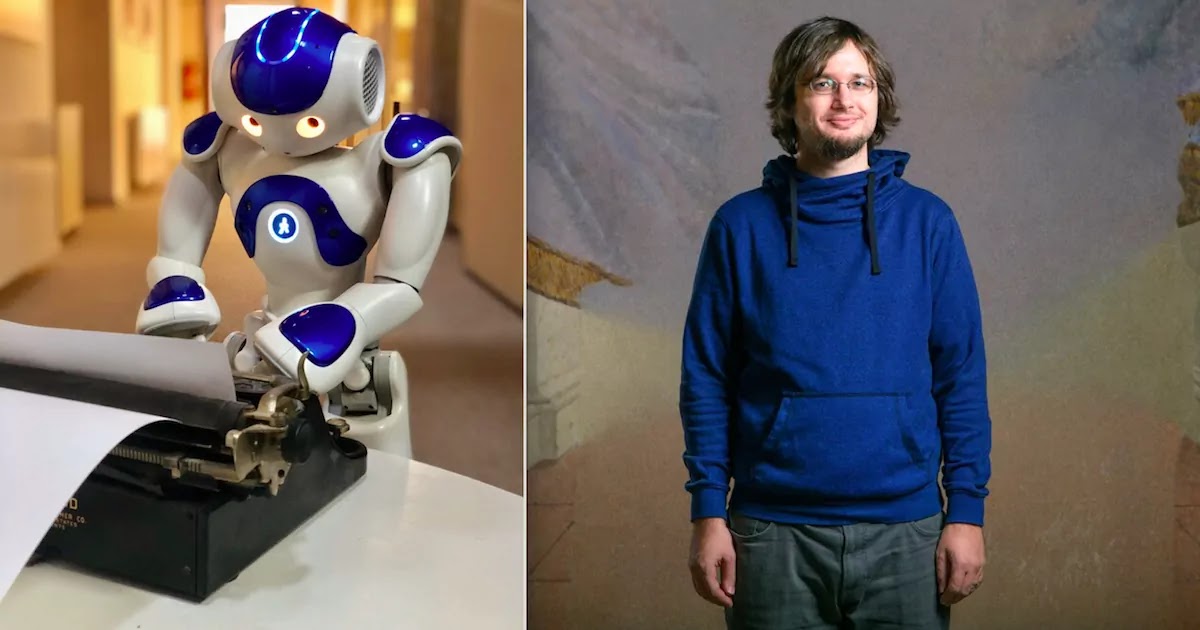
Photo on the right depicts Rudolph Rosa who is part of the research team
We may have heard of the thought experiment that debates whether a thousand monkeys typing forever would eventually produce the greatest novel of all time. Well, we may now have a new question, whether robots may write the greatest play of all time?
A new project run by researchers at Charles University, Švanda Theater and the Academy of Performing Arts in Prague, are utilising Artificial Intelligence to write a new play set to be performed in 2021.
Using open-source language, known as GPT-2, the machine will be given the task of writing a brand new play from a pre-existing base text. The basis of the play will be Karel Čapek and his brother Josef who 100 years ago wrote the play R.U.R. about machines of the future. The play itself coined the term 'robot'.
The 100 year anniversary then seemed like the perfect time to have a play written by robots about the man who wrote a play 100 years ago about robots of the future.
Rudolf Rosa, who is part of the team, said:
"The main idea behind our study came from Tomáš Studeník, an innovator who noticed that the 100-year anniversary of the theatre play R.U.R. is approaching. This was a key moment for robotics, as the idea of a robot, including the word 'robot' itself, was invented by Karel Čapek and his brother Josef, who wrote this play. Tomáš thought that this should be properly celebrated and came up with the idea of turning the story around: 100 years ago, a man wrote a theatre play about robots; what if today, robots wrote a theatre play about men?"
AI researchers believe that we are entering an era where humans and AI will be able to collaborate in exciting arts projects. Rosa who calls it the "the human-in-the-loop concept", explains:
"Basically, all computer-generated 'art' (if we want to call it so) is touched and retouched by humans in some way, but often this is not very transparent. In our work, we are trying to be very explicit on what the machine does and what a human does, making their cooperation an integral part of the system design, not a post-hoc fix."
While AI has already been used to create everything from artwork, to computer programs, to blueprints for construction, this is the first time a major play will be written entirely by AI At present A.I. is even being used to search for drugs that could be of use in fighting the CoVid-19 pandemic.
Rosa went on to explain the creative process:
"When we fed GPT-2 a scene setting and a few lines of the drama script, it generated further lines in the same style and focusing on the topic of the input script chunk. This way, we did not have to train anything (yet), as we restricted the generator a bit to keep to the task and not to diverge elsewhere. We can thus make use of the great large GPT-2 model trained for a very long time on very large texts, which we could not afford ourselves to train on our hardware, as only the largest tech companies can train such models nowadays."
This truly is an exciting project and will be one historic step in the integration of Artificial Intelligence into the arts.















COMMENTS